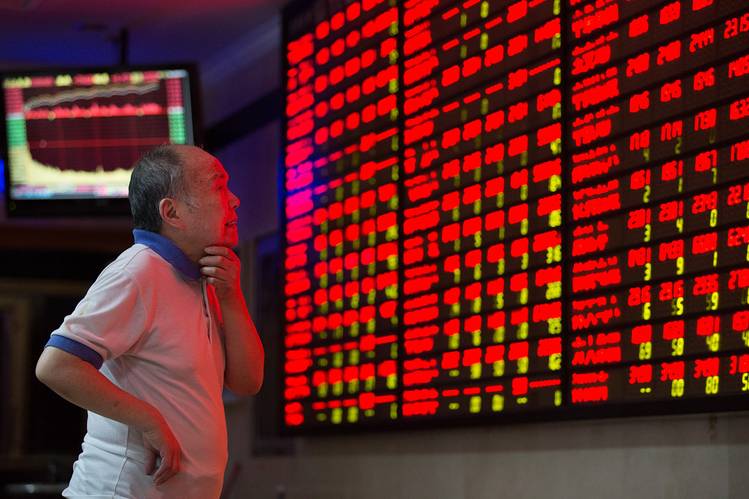
Asia markets traded mixed on Monday as major Chinese indexes dipped.
The Shanghai composite slipped by more than 2 percent and the Shenzhen composite fell 1.9 percent by the end of the morning session.
Hong Kong’s Hang Seng index was lower by about 0.12 percent at 1:48 p.m. HK/SIN lower, after trading in positive territory earlier.
Hang Seng heavyweight HSBC reported its third quarter earnings on Monday. Pre-tax profit jumped 28 percent from a year ago to $5.922 billion, and Revenue for the July-to-September quarter was $13.798 billion, 6.32 percent higher than the same period a year ago.
HSBC’s Hong Kong-listed shares were trading 3.72 percent higher at 1:35 p.m. HK/SIN time, after jumping 5 percent after the lunch break.
In Japan, the Nikkei 225 was trading at 0.11 percent lower while the Topix index slipped by 0.22 percent.
South Korea’s Kospi also trading lower. Heavyweight Samsung Electronics added 1.34 percent while SK Hynix was lower by 0.45 percent.
In Australia, the benchmark ASX 200 rose 1.14 percent, with all sectors trading up. The energy sector was up 1.08 percent, materials gained 1.18 percent and the heavily weighted financial subindex was up 1.15 percent.
“With global equity markets suffering a massive sell-off in October, led by tech counters, the approach of November may be time to stock; so to speak,” analysts at Mizuho Bank wrote in a morning note.
“Pointedly, whether this is … a “healthy” and long overdue correction that is merely (and sensibly) taking account of monetary policy calibrations, and attendant global liquidity conditions or an alarming descend into potentially unruly bear markets,” they said.
“The jury is still out, and perhaps it is useful to take stock of what’s priced in, and drivers of equities at the margin; given the much wider (asset market) spillover,” the analysts added.
Political uncertainty in Brazil, Sri Lanka and Germany
Investors will likely follow the latest geopolitical developments around the world.
In Brazil, far-right candidate Jair Bolsonaro was declared the next president of Latin America’s biggest country. Reports said that with 96 percent of ballots counted, Bolsonaro has 55.5 percent of the votes.
Bolsonaro pledged to reform government finances and reorient diplomatic relations in his first public comments on Sunday after winning the polarizing run-off vote, according to reports. Still, many Brazilians are concerned that he might curtail civil liberties, trample on human rights and muzzle freedom of speech.
On the back of Bolsonaro’s election win, the Tokyo-listed Brazilian stock exchange traded fund rose 10.88 percent after earlier seeing gains of almost 14 percent. Brazil’s stock market outperformed in the run-up to the election, contrary to the overall downward trend in global stock markets for October.
Over in Asia, Sri Lanka remained embroiled in a political crisis after President Maithripala Sirisena fired Prime Minister Ranil Wickremesinghe, replacing him with ex-president Mahinda Rajapaksa.
One market observer said the conflict had been “brewing for a long time.”
“There’s been a lot of tension between the president and prime minister,” Kenneth Akintewe, head of Asian sovereign debt at Aberdeen Standard Investments, told CNBC’s “Squawk Box” on Monday.
Akintewe said there have been “a lot of question marks” over issues such as the constitutionality of the move, which he said came at an “extremely bad” time.
Meanwhile in Germany, Chancellor Angela Merkel’s junior coalition partners gave her conservative Christian Democrats until next year to deliver more policy results, threatening to end their alliance if there is no improvement. Both parties suffered in a regional election on Sunday.
Currencies
The euro traded at $1.1389 on Monday afternoon during Asian hours, easing from an earlier high of $1.1412.
The U.S. dollar index, which tracks the greenback against a basket of its peers, was at 96.457 in afternoon trade, after seeing highs above 96.8 last week.
The Japanese yen was at 111.89 against the dollar, strengthening from levels above 112.8 last week. The Australian dollar was at $0.7096, after seeing lows around the 0.702 handle in the previous session.





























